One Canadian’s quest to use Scripture to help sell climate science
White evangelical Protestants are the group least likely to believe in climate change. So in America, Katharine Hayhoe is setting out to change that.
Climate change sceptics or global warming deniers at a Tea Party Express rally in Detroit. (Jim West/Report Digital-Rea/Redux)
Share
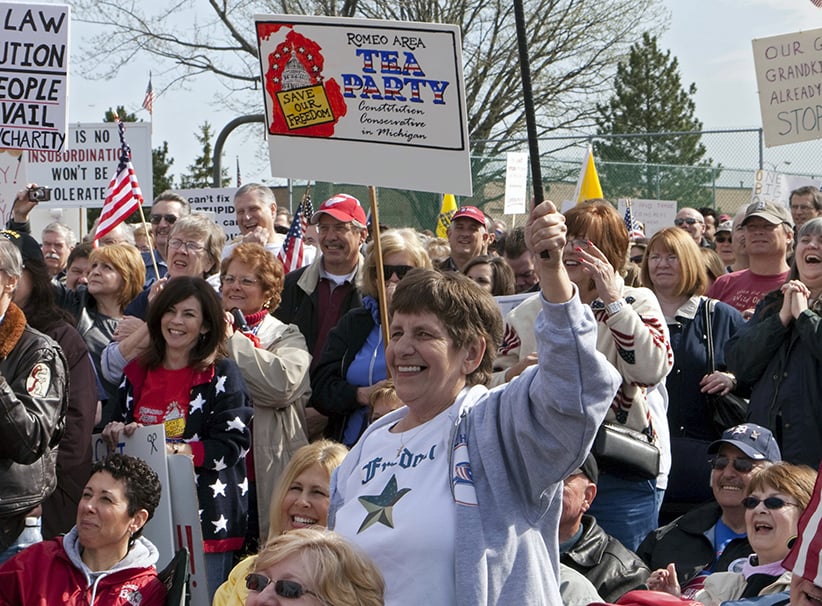
Not far into her presentation—after a slide displaying results from ancient ice core samples; before one showing 86 per cent of Texas currently languishing in drought—Katharine Hayhoe shifts from science to Scripture. The temperature graph on the screen behind her dissolves to white, and in its place appears a verse from Paul’s second epistle to Timothy. “For God has not given us a spirit of fear,” Hayhoe reads, “but of power and of love and of a sound mind.”
A murmur of recognition rises from the 100 or so people in a college lecture hall in Midland, a West Texas oil town of 125,000, about five hours’ drive from Dallas. Here, with Sunday services over and unseasonably hot fall sun hammering down, a mixed-denomination crowd of Lutherans, Methodists and Episcopalians has gathered to behold an unlikely figure—a Canadian climate scientist who happens to be an evangelical Christian. “Our response to climate change was never intended to come from a place of fear,” says Hayhoe, building volume as she warms to her theme. “God has given us three amazing gifts. He’s given us a spirit of power to get things done, a spirit of love and—as a scientist, this is my favourite—a sound mind. Who knew? God gave us a sound mind to make good decisions, using the information he’s given us.”
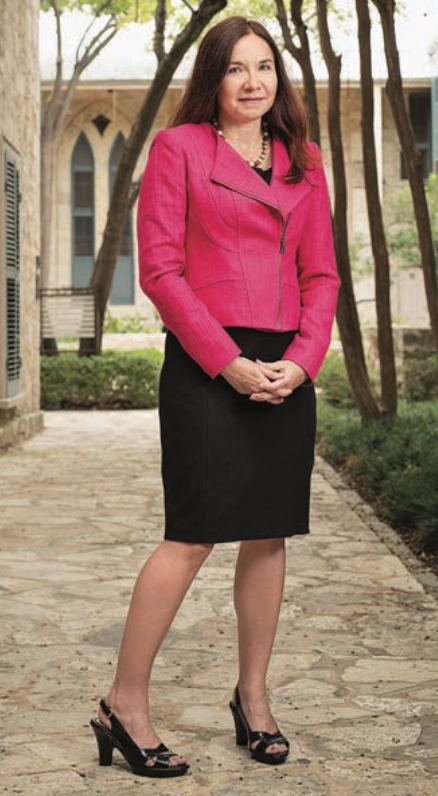 Nods and exhalations of “uh-huh” from the crowd give the brief sense of a revival meeting, making it easy to forget that Hayhoe is, first and foremost, a scientist. The 43-year-old Ph.D. made her name building localized statistical models (“downscaling,” in the argot of her field), which governments from California to Massachusetts use to prepare for a future onslaught of drought, or unprecedented rainfall. She currently heads up the Climate Science Center of Texas Tech University in Lubbock, and has contributed to reports of the Intergovernmental Panel on Climate Change that won the 2007 Nobel Peace Prize. Later this month, she’ll appear at the UN Climate Change Conference in Paris on behalf of the Union of Concerned Scientists, a 46-year-old organization devoted to promoting a healthier, safer planet.
Nods and exhalations of “uh-huh” from the crowd give the brief sense of a revival meeting, making it easy to forget that Hayhoe is, first and foremost, a scientist. The 43-year-old Ph.D. made her name building localized statistical models (“downscaling,” in the argot of her field), which governments from California to Massachusetts use to prepare for a future onslaught of drought, or unprecedented rainfall. She currently heads up the Climate Science Center of Texas Tech University in Lubbock, and has contributed to reports of the Intergovernmental Panel on Climate Change that won the 2007 Nobel Peace Prize. Later this month, she’ll appear at the UN Climate Change Conference in Paris on behalf of the Union of Concerned Scientists, a 46-year-old organization devoted to promoting a healthier, safer planet.
But here in the beating heart of Christian America, she’s an apostle of her discipline, faced with a daunting challenge. Of all U.S. religious groups, white evangelical Protestants are least likely to believe in human-caused planetary warming: Only 11 per cent accept the idea, compared to 46 per cent of the broader U.S. population. Yet no movement punches further above its political weight, bringing cash and votes to Republicans who voice their doubts and fears in Washington. If you belong to the 97 per cent of climate scientists who regard global warming as real, man-made and potentially catastrophic, this deep fracture in U.S. politics is an enormous problem.
Even as President Barack Obama tours the U.S., drumming up support for an aggressive program aimed at curbing carbon emissions, Republican politicians from the South are striving to thwart him, using their congressional clout to undermine the science supporting his case. They are led by Texas Rep. Lamar Smith, chair of the House committee on science, space and technology, who has, for months, been calling for a $300-million cut to NASA’s earth science budget, while using his committee’s subpoena powers to re-examine the work of climate-change scientists at the National Oceanic and Atmospheric Administration.
All of which means the prospect of forceful action on climate by the world’s most powerful country hangs suspended—log-jammed in a place where fact must share equal footing with faith, among folks with a long history of anti-intellectual sentiment. It’s not that they won’t listen to an academic. It’s that your garden-variety, God-doubting, Richard Dawkins-reading scientist is never going to reach them.
Hayhoe, to say the least, is not that kind of scientist. In Midland, she opens her case for human-caused global warming with charts and graphs, then silences the crowd with a map showing the disproportionate impact of climate change on the world’s poorest. “We are told to love others as Christ loved us,” she says. “How did Christ love us? Was it with a ‘me first and you later’ attitude? It wasn’t.”
More heads bob, and more affirmative murmurs rise from the floor, and it’s here that Hayhoe shifts from an appeal to conscience to a call for action, enlisting her audience into a battle for the future of humanity. “How loving is it to ignore when developed countries do things that actively harm developing nations?” she asks, pausing to let the question sink in. “When people who have resources do things that harm people who do not, right here in our country?
“That’s why our Christian values are integral to how we treat this issue,” she tells the hushed assembly. “Far from holding us back, or making us doubt, or saying there’s nothing we can do, our values demand we be on the forefront of this issue. That’s what we as Christians are called to do.”
It’s an idea that sustains her as surely as it wins over her audiences, because Hayhoe’s venture to the front lines of America’s climate-change war has been a scarring one. Assailed by right-wing media, threatened by online trolls and snubbed by leaders of her own university, she admits there have been moments when she considered abandoning this unique form of advocacy. She was energized anew last year when Time magazine named her to its list of the world’s 100 most influential people. “There’s something fascinating about a smart person who defies stereotype,” wrote actor Don Cheadle in the magazine’s effusive tribute.
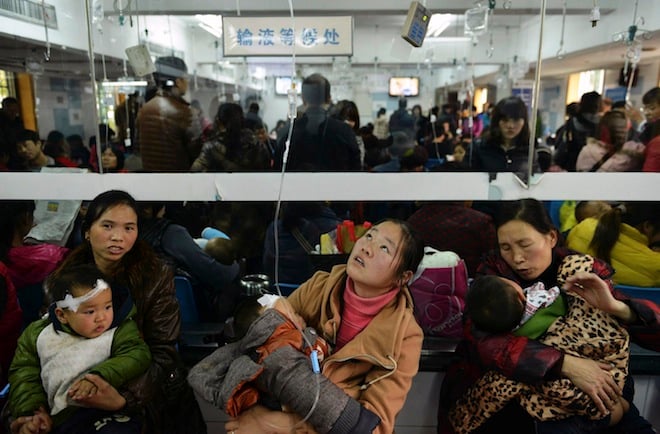
But the honour made her an even greater target. In July, she appeared on The 700 Club, the Christian Broadcast Network’s flagship talk show, with her husband, Andrew Farley, who is pastor of an evangelical church in Lubbock. Hayhoe made her usual case for the validity of climate-change science. They laughingly recounted how she persuaded Farley that global warming was real only after they were married, which led them to co-author a book, A Climate for Change: Global Warming Facts for Faith-Based Decisions. But the torrent of online abuse that followed—much of it directed at CBN for daring to air the segment—forced the network to shut down the comments stream on its website.
This sort of reaction seems all the more dissonant, given Hayhoe’s unthreatening bearing. At five foot six, she’s conspicuously smaller than many of her students, with reddish-brown hair framing a round face made rounder by oval glasses. She reacts to the Texas sun as you might expect of a Torontonian of Scot ancestry—by breaking out in freckles. If she finds something funny, she’s prone to speaking through her own guffaws.
Beneath the approachability, though, lies her rock-solid conviction that faith and reason are compatible. Raised in a household where religion and empiricism peacefully coexisted, Hayhoe was inspired to pursue science by a father who taught the subject to high-schoolers, and who saw it as a gift from God. They were members of the Plymouth Brethren, a back-to-the-Bible offshoot of the Anglican Church considered moderate by the standards of American evangelicalism. Her parents took the Church’s ideals seriously, though, packing the family off to Colombia when Katharine was nine to teach and work as missionaries.
Yet theirs was a never a literalist interpretation of the Bible. As an undergrad at the University of Toronto, Hayhoe majored in astronomy and subscribed to scientific understandings of the age and origin of the universe. Only after her studies led her to the U.S. would she meet people who believed the Earth is young, or that evolutionary theory is a hoax. To this day, she navigates what she calls this “peculiarly American perspective” by limiting to 6,000 years the historical temperature data she shows when talking to religious audiences, because that’s how old some Christians believe the Earth to be. “I view myself as picking my way through a minefield, with one specific mine that I want to defuse,” she explains. “To get to it, I’m willing to pass by every other issue on which science and faith disagree.”
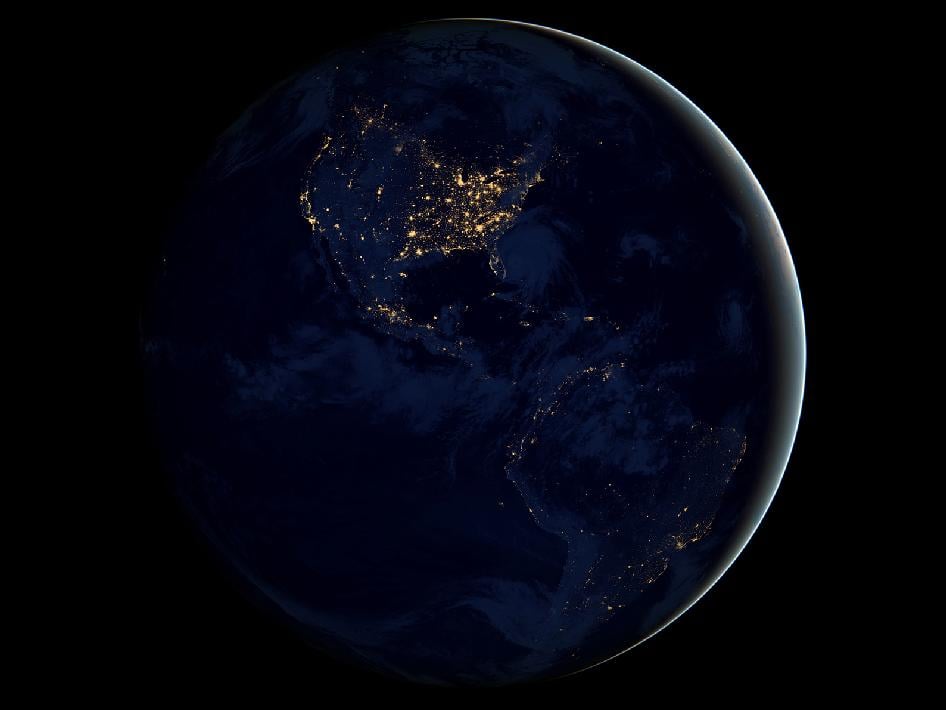
She did not begin with any such sense of mission. Hayhoe got into her field by chance, taking a part-time job in the early 1990s with Danny Harvey, a climatologist in the U of T’s geography department. Harvey recalls a bright young student with a strong grasp of basics such as physics and fluid dynamics, not to mention what were then newfangled software tools such as PowerPoint and Excel. (One of her jobs was teaching Harvey how to use them.) He encouraged her to go into atmospheric science, thinking she was well-suited to the burgeoning field of climate modelling, and helped get her a master’s candidacy at the University of Illinois at Urbana-Champaign.
There, she studied under Don Wuebbles, a world authority on global warming who is currently working at the White House as assistant director for climate change issues. Wuebbles would later serve as Hayhoe’s Ph.D. thesis adviser, and describes her as a “top-notch” scientist—especially when it comes to modelling local impacts of climate change. He also recalls that she never attempted to hide her faith, which—however unfashionable it might have seemed to colleagues—he read as a sign of courage. (Wuebbles himself is a Catholic.) It was at a meeting of a Christian fellowship group at Illinois, in fact, that Hayhoe met Farley, who was obtaining a Ph.D. in applied linguistics. They married, and Farley got a faculty position at the University of Notre Dame in Southbend, Ind., where they lived for five years.
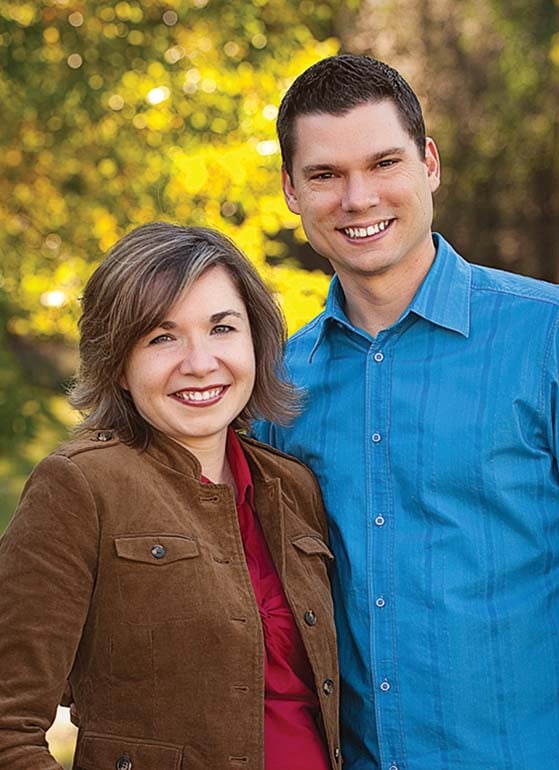 Farley would become Hayhoe’s first convert to climate-change science. At the time, she had set herself up as a consultant, taking contracts and university research projects, creating models and impact assessments for the U.S. Great Lakes region, Ontario, California and the cities of Boston and Chicago, among other jurisdictions. With the Kyoto Protocol in the news, she had grasped the social importance of her newly chosen field. But not long after they married, she was thunderstruck to learn she and Farley didn’t see eye to eye on the issue closest to her heart. “Up to that point, quite frankly, I hadn’t known exactly what she was doing,” Farley now says. “I knew it was quite complicated, that she was working with models of the Earth’s atmosphere. But I didn’t know where she was going with it.”
Farley would become Hayhoe’s first convert to climate-change science. At the time, she had set herself up as a consultant, taking contracts and university research projects, creating models and impact assessments for the U.S. Great Lakes region, Ontario, California and the cities of Boston and Chicago, among other jurisdictions. With the Kyoto Protocol in the news, she had grasped the social importance of her newly chosen field. But not long after they married, she was thunderstruck to learn she and Farley didn’t see eye to eye on the issue closest to her heart. “Up to that point, quite frankly, I hadn’t known exactly what she was doing,” Farley now says. “I knew it was quite complicated, that she was working with models of the Earth’s atmosphere. But I didn’t know where she was going with it.”
A Virginian whose family had deep Republican roots, Farley had been steeped in the sort of doubts raised on denialist websites. Was climate change theory based on cherry-picked data? Isn’t it true that the Earth’s climate fluctuates due to variations in its orbit around the sun—ergo, human responsibility was open to question? For two years after they were married, he tried out these anti-warmist counter-narratives on his wife and, one by one, she knocked them down. The case for climate change, she’d explain, is based on one of the deepest data sets ever gathered. That said, the Earth’s pitch and orbit fluctuate. In fact, we were headed for another ice age before the industrial revolution began releasing carbon into the atmosphere. Since then, she told him, temperatures have climbed at a pace and to a level unseen in our geological period.
Finally, after personally crunching global temperature data he’d downloaded from NASA’s website, Farley surrendered. “I realized that either all of NASA was being duped, or there was something to this,” he says. Having made his peace, he jumped on board with both feet. The book he co-authored with Hayhoe has strengthened her case among evangelicals, because Farley has become an influential voice in Christian America, hosting radio shows and writing books on faith while teaching linguistics at Texas Tech.
The experience of converting her husband helped prepare Hayhoe for the path ahead. In 2005, she and Farley moved to Lubbock, Texas, a city of 239,000 on the high plains of West Texas—the birthplace of Buddy Holly, and home to more than 200 churches. Farley had taken a job as pastor at one of the smaller ones, while Hayhoe had taken a research post in the geosciences department of Lubbock’s other fabled institution, Texas Tech University.
The idea was to build her resumé with grant-funded academic research, but she soon found herself in demand as a speaker to local church groups and service clubs. They wanted to hear more about global warming. And they wanted to hear it from a Christian.
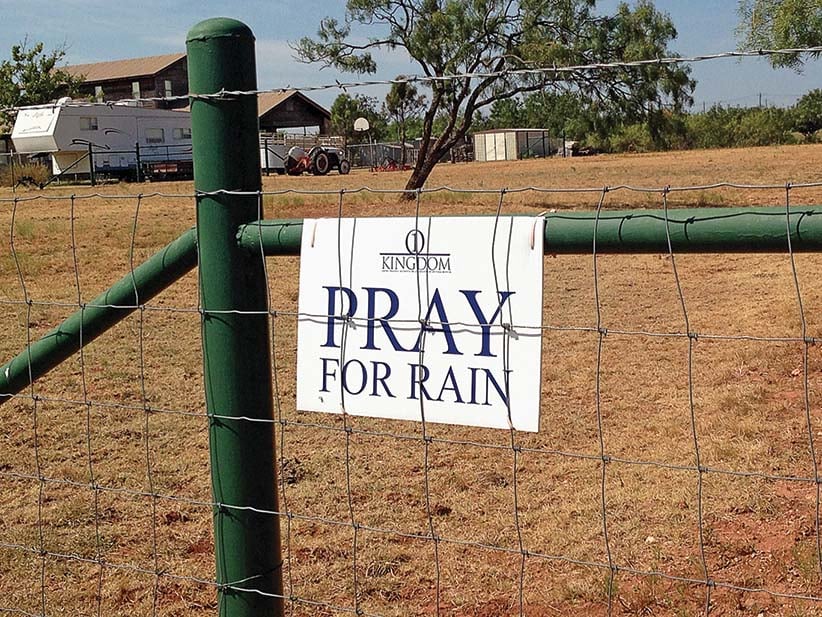
After her Midland talk, Hayhoe joins me for the two-hour drive north toward Lubbock, which cuts through America’s richest oil reservoir, the Permian Basin. Pump jacks nod in the setting sun, and oilfield equipment litters the edges of dowdy towns we pass. Outside the small city of Lamesa, a drilling rig is going full-bore, with the Lone Star flag waving from its derrick. It seems potentially hostile country for a climate scientist, and when I say as much, Hayhoe admits that, back in 2005, she was flat-out scared to come. “I’d finally clued into the fact that a lot of people in the United States did not think climate change was real,” she says, “and that large numbers of them lived in Texas.”
She debuted as a speaker before a women’s church group in Lubbock, and soon learned that not all skepticism toward global warming in Texas was rooted in religious dogma. Occasionally, she encountered people who believed it was a sign of end times, or part of God’s unrevealed plan. But mostly, she met folk who simply feared for their jobs in the local oil industry, or had a patchwork understanding of the issue, gathered in sound bites from cable news or Rush Limbaugh’s call-in show.
She counters the economic arguments by pointing to job growth in renewable energy, or projections suggesting only a gradual decline in reliance on oil. She emphasizes potential free-market solutions, such as battery-based home power systems, or a worldwide trade in carbon emissions. Politics has proven a much greater challenge. Climate change, Hayhoe often points out, is a so-called “tragedy of the commons”—a problem affecting everyone that requires collective action. To conservative ears, that means government intervention, which sounds a battle cry to America’s right-wing fringe. “Global warming is pushed by scientists who are funded by governments or think tanks to whom it is beneficial to create a crisis,” wrote one commenter in response to a story about Hayhoe on the Christian Broadcast Network website. “They will benefit greatly from taxation of the masses to ‘fight it,’ or using those tax dollars to line their pockets.”
The charge of self-enrichment is a common knock from her most vocal adversaries. After an address to petroleum geologists in Midland nine years ago, Hayhoe was confronted by a greying man in the audience who accused all climate scientists of “being in this for the money.” It was a miserable afternoon for which the guest of honour—a non-smoker—was rewarded with a crystal ashtray. (It was also mild compared to other attacks she has endured. A few years ago, a man emailed Hayhoe, saying he’d like to see her guillotined while her husband and the couple’s young son watched. She and Farley forwarded the note to police and hired a consultant to suggest security precautions. They now live in a gated community).
But accusations of feather-bedding she can answer head-on, unlike the subtle influence of political machination. By the late 2000s, she was indeed drawing millions in grant money to Texas Tech, while obtaining a Ph.D. from Illinois. Yet then-chancellor Kent Hance, a former Democrat politician who’d defected to the Republican party, made it clear he disapproved of her public campaigning. Not long after, Hayhoe was stunned to be overlooked for a tenure-track position in the school’s geosciences department, and only the last-minute offer of a fully tenured position from the school’s political science department stopped her from leaving. This unconventional arrangement has allowed her to keep a hand in research, while sharing her expertise as a public advocate.
Other political attacks have played out more publicly. In late 2011, she found herself in the national spotlight by dint of an improbable link to Newt Gingrich: She had written a chapter on climate change to run in one of the veteran Republican’s upcoming books. Gingrich, however, then decided to run for the Republican presidential nomination, and this tenuous connection to a believer in man-made planetary warming was deemed a liability. So his editors dropped the chapter, prompting a furious Hayhoe to call Gingrich out on Twitter, and on Bill O’Reilly’s Fox News talk show. Once again, she was deluged with online hate messages.
The episode laid her low. “It was very discouraging and overwhelming,” she says. “That’s not what you sign up for as a climate scientist.” Increasingly, she came to believe she was the target of a sophisticated public-relations campaign aimed at casting doubt on her motivations and her findings. She picked herself up in the ensuing weeks, going back to her spreadsheets and her lecturing duties. But it was a while before she ventured back into the public eye.
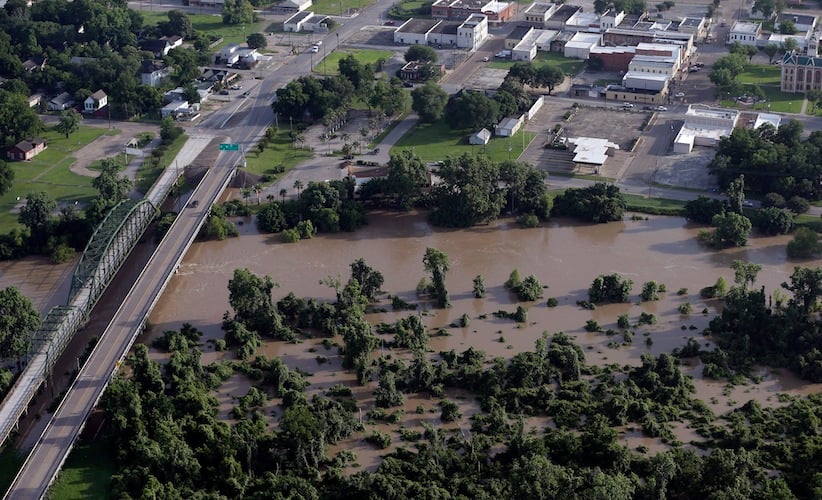
Now, with the Paris conference approaching, Hayhoe’s status as a bridge between faith and science communities has placed her in high demand. “She’s filling an important need,” Wuebbles, the White House climate-change adviser, told Maclean’s. “We know evangelicals, in particular, are questioning climate change, and to be able to deal with that from inside the community can really have impact.” Last week, Hayhoe joined scientists in Washington, who were marking the 50th anniversary of the first warning about human-caused climate change given to the White House by president Lyndon Johnson’s scientific advisers. She then flew north to witness the annual migration of polar bears near Churchill, Man., where she did a webcast talk from the tundra on faith and stewardship. In three weeks, she will join world leaders and 25,000 delegates at the COP21 Conference in Paris, where she will speak on the moral case for action against climate change.
As for many climate-change scientists, the carbon footprint left by her frequent travel raises questions of moral consistency: She vacations each summer in Ontario’s Muskoka country, noting, “I’m not willing to give up seeing my family.” So she donates to a faith-based non-profit called Climate Stewards to offset the effects of her air travel, while making local trips in her and Farley’s Ford Escape hybrid.
Still, the work that sets Hayhoe apart happens at the grassroots: talks to church groups, and consultations with conservation organizations throughout the U.S. and Canada. Nowhere is her work more vital than in her home state, where the effects of warming are as dramatic as anywhere in the continental U.S. Extreme heatwaves are up to 20 times more likely to strike Texas than they were half a century ago. At a recent appearance in San Antonio, Hayhoe displayed a slide showing the state on a path to averaging 100 days a year over 37° C before the end of the century; historically, it has averaged 10 to 20 days.
The effects are already keenly felt. Before a historic deluge of rain last May, water levels in many of Texas’s lakes and reservoirs had fallen to 10 per cent capacity. “You see those bathtub rings around them,” says Hayhoe, who advises regional water managers throughout the state. And much of Texas’s aquifer is expected to run dry within 30 years.
Hayhoe’s stop in San Antonio—the hometown of Lamar Smith—was one of three Texas appearances in September in which she strived to balance dystopian predictions with notes of optimism. (“If we can’t agree on the politics, we can still agree on solutions.”) Hayhoe realized long ago that overwhelming audiences with bleak facts can be counterproductive. Better, she says, to “connect with people from the heart on whatever they care about: water for farmers; faith values for churchgoers; the four-way test of principles for Rotarians. Instead of starting from opposite poles, you’re starting from the same place, walking together.”
Another, more obvious, rhetorical strategem: Keep a lid on the politics. Farley believes being Canadian helps her, because she’s free from the tribal pressures of belonging to America’s major parties. “She’s neither Democrat nor Republican in her views,” he says. “That allows her to look at things from a perspective that is less political and more scientific.”
She will, however, argue Scripture. To those who believe planetary warming is an act of God that humans are helpless to change, Hayhoe counters with Biblical concepts of free will and God-given stewardship of the Earth. Same goes for those who believe climate change portends end times. “The whole attitude of, ‘Screw you, I’m going to do what’s best for me and let the world burn’ is a very un-Christian one,” she tells me. “I don’t understand how Christians could be that way.”
How far has she moved the needle of public opinion? For now, it’s hard to say. In a poll of 3,000 Americans last year, white evangelicals seem as blasé as ever about climate change, with 64 per cent saying they’re unconcerned about the issue. (By contrast, 73 per cent of Hispanic Catholics say they’re somewhat or very concerned.) And there’s no shortage of leaders feeding the denialism, as Hayhoe saw last April when she appeared before Austin city council. “For eons of time, before humans existed, there has been climate change,” declared council member Don Zimmerman, who prefaced his remarks by noting that he’d trained as an engineer at Texas Tech. “So climate change is normal. But the way the politics of this is set up, if it gets hotter and dryer: climate change. If it gets cooler and wetter: climate change. If there’s no change in the weather at all, it’s climate change. I see Chicken Little in this whole thing.”
Hayhoe politely directed Zimmerman to a website that addresses such arguments, noting that the pace of change now under way is unprecedented in 8,000 years. But she remains upbeat, confident she’s nudging her audiences toward an acceptance that will one day produce a tipping point. Her reception in Midland is a case in point. Unlike Hayhoe’s ill-fated trip to the city nine years ago, today’s session ends to loud applause, and many spectators linger to shake her hand, and talk. Jack Hardy, a 78-year-old retiree, admits he wouldn’t have come if it hadn’t been organized by his church, and seems open to Hayhoe’s message. “I don’t see how anyone can deny the climate is changing,” he says.
Not far away stands Bob Altany, a 58-year-old petroleum geologist whose outlook could not stand in sharper contrast to colleagues who attacked Hayhoe last time she was in Midland. “I think we should stop fighting the idea of climate change, accept the science and think what we can do,” he says. “It’s been a frustrating issue for me, because people in my industry see any taxation as a direct threat to our livelihood, to our whole image of what we do.”
Altany, a Methodist, admits that the closer he gets to retirement, the freer he feels to speak about the environmental impact of his industry. “What I find hopeful is she’s using faith to convince people,” he adds. “Yes, we really do need to take action. Yes, it can do good, and that alone should motivate us. This is something God wants.”